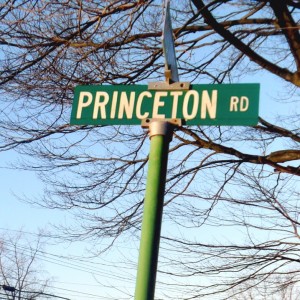“Choosing your major at the end of sophomore year is one of the most important decisions that you will make at Princeton.”

That sentence opens Princeton’s website on major choices, and it feels slightly intimidating as I enter the second semester of sophomore year. Why? As I approach upperclassman status, my major will influence how I experience independent work, and I want to be sure I enjoy it. I’ve previously used fate to guide my decisions (ex: growing up on Princeton Road might have played a role in my choice of college), but there’s no street sign to decide my concentration – and probably not one to decide yours, either. Something else has to point us in the right direction.
Departmental guides for independent work might be a good place to start. I’ve read through the Woodrow Wilson School’s guide to get a feel for the terms, timelines, and page limits expected of my prospective major. If you’re seriously considering a department, it’s important to know how your junior and senior research might be structured — and to see if that structure aligns with your interests.
By comparing research guides, you can determine if you’d enjoy the particular type of engagement that your junior papers and senior thesis would require. WWS has an explicit focus on policy evaluation, but other departments also accept policy research. Politics majors, for example, can include policy recommendations in independent work; but their guide focuses more on theoretical analysis. This distinction – or the research distinction between any majors you’re curious about – is worth noting before you make a final decision. All of Princeton’s independent work guides demystify departmental standards, so you can decide what kind of researcher you want to be.
You might find that research guides raise more questions than answers – and that’s okay. There are ways to get answers: speaking with department representatives, asking upperclassmen, or even browsing previous thesis titles. I’ve used each option during my time at Princeton, and I’ve realized something exciting: All departments recognize that good research stems from genuine interest. As a result, most majors offer a great deal of flexibility. Students who aren’t drawn to any existing program can even design and declare an independent concentration, with the help of two faculty advisers. So while research guides are a great place to start, the full range of possibilities exceeds what’s written on the paper.
Maybe you, like me, haven’t ruled out the chance of finding a helpful street sign. But for now, independent work guides can help you decide where to spend your last two years – which seems weird to write, because it means the first two years are almost over, which means time is going unbelievably fast and April is racing toward us. That’s when I’ll join the rest of 2017’s A.B. students and officially declare my concentration. To prepare for such a big decision, thinking about research is one small but valuable step.
— Melissa Parnagian, Social Sciences Correspondent

